|
Kaviarasan, who simply goes by ‘Kavi’ in the faculty, welcomes all those around him with a beaming million-dollar smile. He grew up in the serene town of Taiping and was raised in a humble family of five, consisting of his parents, sister, and grandmother. As the first in his family to graduate from tertiary education — and the first lawyer at that — Kavi is determined to realise the hopes and dreams of his loved ones. With a deep affinity for reading, Kavi finds himself entranced with the world of literature, be it original Tamil works or English-translated pieces. Currently, his attention is divided between the works of a Lebanese-American writer, Khalil Gibran, as well as pieces related to Sufism. Beyond a mere consumer of literature and writing, Kavi is also a literary merchant of sorts, trading his ideas through his blog: ‘Caffeine Addict: A Modern Dilenttate’. This platform is where Kavi’s streams of thoughts — usually a fun mixture of Tamil literature and constitutional matters — converge. Kaviarasan, who simply goes by ‘Kavi’ in the faculty, welcomes all those around him with a beaming million-dollar smile. He grew up in the serene town of Taiping and was raised in a humble family of five, consisting of his parents, sister, and grandmother. As the first in his family to graduate from tertiary education — and the first lawyer at that — Kavi is determined to realise the hopes and dreams of his loved ones. With a deep affinity for reading, Kavi finds himself entranced with the world of literature, be it original Tamil works or English-translated pieces. Currently, his attention is divided between the works of a Lebanese-American writer, Khalil Gibran, as well as pieces related to Sufism. Beyond a mere consumer of literature and writing, Kavi is also a literary merchant of sorts, trading his ideas through his blog: ‘Caffeine Addict: A Modern Dilenttate’. This platform is where Kavi’s streams of thoughts — usually a fun mixture of Tamil literature and constitutional matters — converge. Kavi is also known for his unwavering efforts in shedding light on the various shades of his cultural heritage. Not only has he used his capacity to write and speak on the matter, but he has also been actively involved in organisations that place their cultural and religious identities at their forefronts, such as the Tamil Language Society of University Malaya (‘TLSUM’), the Hindu Society of University Malaya (‘HSUM’), and the Malaysia Tamil Orator Association. Have you always been interested in the legal field, or was it predisposed by certain events? ‘I remember being placed in the science stream, and trust me, adjusting to it was very challenging. That was when I got determined to choose social sciences.’ At first, Kavi intended to delve into the accountancy stream for his Malaysian Certificate of Education ('SPM'), which afforded him more room for his passion for literature. However, his good results during the newly introduced Pentaksiran Tingkatan Tiga (‘PT3’) had him ushered into the science stream. Amused, he recalled that he did fairly well — even in additional mathematics. Following that, he proceeded with his initial plan to pursue accountancy in matriculation, and finally edge one step closer to the art of literature. He admitted that the switch from science to accountancy made him feel like his options were limited. From there, he set out in search of the most versatile university courses available, and his heart ended up set on law. Another pivotal moment that reinforced Kavi’s choice for law was his harsh experience with law enforcement agencies at the tender age of 17. His father was issued a fake death certificate, and not long afterwards, they received a phone call from the police — asking them to provide a statement for a report. Despite his lack of legal knowledge at that time, Kavi had to help his father face this predicament as he was the only one equipped with formal education. Sadly, the treatment they received was acrimonious, as if the ‘innocent until proven guilty’ maxim was looked over — allowing preconceived notions to materialise. The worse part, he recalled, was that the responsible law enforcers failed to inform them that their statements, which were taken under Section 112 of the Criminal Procedure Code, could be used as evidence in court. The painful experience opened Kavi’s eyes to the struggles behind the preservation of human rights, especially in marginalised societies. He believes that walking down the legal path would aid him in his fight for said rights; not only for himself but for all those who shared such turmoil. Kavi holds firm to his purpose in pursuing law — advocating for human rights How did your passion for teaching ignite, and do you plan to incorporate this passion into your future career? ‘I really love teaching. In fact, one of my earlier career options was to be a teacher. Maybe one day I will continue my journey as a lecturer.’ Kavi’s passion for teaching has long been fostered in his heart. His involvement in teaching sprung up as one of life’s many surprises, for it all started when his biology teacher offered him a part-time job to teach basic English skills to young children. His charisma and skills then landed him an offer to continue teaching basic proficiency skills to the staff at NG Art Gallery. After years on hiatus, Project SpeakUp 2019/2020 reopened the door to teaching. It was a student-run project organised under the Social Engagement (‘JM’) course for first-year law students. Without hesitation, Kavi immediately took on the role of a facilitator. Although resources were limited, thanks to him and his groupmates’ sheer determination and creativity, they turned ashes into diamonds with the children ultimately having a good time. Kavi has several plans in mind to incorporate his love of teaching into his future, inspired by all those who presented him with the gift of learning. One of them, is to be an academician. To grasp this aspiration of teaching the future generations of law students, he explained that he would need to further his studies to postgraduate levels. Even if he does not end up in academia, Kavi hopes to be a great master to his pupils one day by fostering their growth within the legal fraternity. Kavi, during Project SpeakUp 2019, as a facilitator You previously interned at Messrs Chambers of S Sakthi, which specialises in divorce, custody, and annulment. Do share with us your experience there. ‘I helped with a lot of custodial cases, so I got to witness the complexity of each case. It was tough, but the extra challenges along the way truly improved my legal skills tremendously.’ Kavi’s path crossed with Messrs Chambers of S Sakthi due to a batchmate’s recommendation. Looking back, he acknowledges that the six-week internship period was not an easy road, yet, each hurdle was necessary to build a learning curve — slowly building his competency as a future lawyer. During his time there, he would usually be assigned cases regarding family law, especially in divorce and custody. In accustoming himself to this scope of law, his interest was piqued, as the cases are oftentimes complicated. This then offered him a chance to understand conflicts from a first-person point of view. Undeniably, this complexity and nuance added another layer of excitement to his challenges, as no case is similar to another. It also exposed him to the practices of a well-rounded lawyer, as he got to witness the mechanics beyond substantive laws in motion. He disclosed that in family law settings, the art of handling clients is essential, as each client has different expectations in mind. From there, those with opposing aims might be present in the same room, at the same time. Delicate approaches might not work universally, as some instances may require hard-line methods. Therefore, reading the room and adjusting accordingly would go a long way in navigating such tense situations. Continuing to work as a paralegal there during his final year was not something that Kavi had planned. Though considering his master’s positive appraisal of his work and the wealth of knowledge acquired, he accepted the opportunity to continue growing with firm not long after the offer came to his doorstep. To everyone looking forward to their internship in the upcoming semester break, Kavi would like to share a hack he found most helpful. That is, to negotiate a clear understanding with an employer. Kavi would often communicate his academic commitments in order to reach a middle ground with his master — allowing him to take the time to fulfil both his obligations as a student and paralegal. Due to his studies, it was vital to forewarn unprecedented issues arising from his undergraduate life. Albeit spilling over the edge at times, he still faced the challenges day by day to keep both responsibilities in harmony. Could you tell us about your experience as a speaker at the International Tamil Forum on Literature, during, and after the event? ‘It was chaotic at times, but it was one for the books!’ The opportunity to be a speaker was, yet again, one of life’s unexpected gifts for Kavi. He credited the Secretary of the Malaysia Tamil Orator Association, who liaised with the Mannargudi Tamil Society of Tamil Nadu, India, to bring this chance to life. Kavi was impressed with how specific associations existed to cherish and promote the lifelong works of revolutionary poets from India. From there, he expressed that it was truly an honour to speak about Subramania Bharathiyar, someone he had often written about in his blog posts. The pre-event preparations were quite chaotic, exacerbated by the fact that it was an international forum held in another country with a different time zone. Despite so, he did not let the technical impediment shake his confidence and composure, for he realised that the bigger challenge was to deliver his ideas effectively. Keeping an eye on the prize, he simply went with the flow and managed to deliver his speech successfully! Kavi also took the opportunity to make his home country proud by placing our national flag, the Jalur Gemilang as his virtual background. During the event, he spoke about how the works of Subramania Bharathiyar resonated better with the Malaysian community than it has with the Indian community, since our society exemplifies the poet’s vision of maintaining unity in a multi-racial setting. Kavi also shared that the works of the poet has been incorporated into the National Tamil Vernacular Schools (‘SJKT’) syllabus — serving as a homage to literary pieces as such. He also touched the liberalism elements engrained by the poet, which inspired him to think critically about issues in life, for there is always more than what meets the eye. As a firm believer in emotive writing, Kavi took it to his Facebook page to permanently commemorate this valuable experience. ‘I love writing, even when it is not academically related. I love to express myself through words, because deep down, I hope that someone will be inspired from reading my thoughts, no matter how silly it is.’ Kavi expressed that his involvement in editorial works was ignited by his passion for writing. Being in Pothigai was monumental to his literary journey. It allowed him to embark on a different path; sharing the beauty of Tamil literature with non-Tamil speakers. As the first-ever bilingual magazine in TLSUM's long history, he shared that Pothigai was subjected to criticism for including English-translated works, as it is said to ruin the originality of the literary pieces. Despite that, Kavi utilised his skills as an Editor-in-Chief to contribute to the English Language Editorial — translating Tamil works into the English language. His main purpose behind this was to secure a larger audience for Tamil literary works, demolishing the proverbial wall that is keeping others from appreciating the pieces in other languages. Kavi displayed his pride as a Malaysian during the International Tamil Forum on Literature On a national level, you were part of Felo Parlimen Malaysia (‘Felo Parlimen’), an initiative aimed at encouraging participants to spark change in their respective communities through advocacy projects. What inspired you to branch out, specifically into constitutional literacy? ‘Constitutional literacy is vital as it holds the key to understanding the fundamental rights owned by every citizen.’ His involvement with Felo Parlimen began when one of his seniors, Anson Liow, asked him to join the MisiConsti57 project. Back when Kavi was still a freshman, he witnessed how the Bar Council initiated efforts to increase legal literacy by handing out pamphlets at rural areas. They were not just any regular pamphlets, but they contained materials in Malay, Tamil, and Mandarin. To him, this was an effective movement to allow the countryside community, especially the elderly, to understand what human rights are guaranteed under the Federal Constitution (‘Constitution’). Kavi, who is a fierce human rights fighter, also took this window of opportunity to teach his own grandmother about the law — she even knows the citizenship rights conferred by the Constitution, as she had to fight her way to get her red identification card changed to blue! Similarly, MisiConsti57 was shaped to advocate for fundamental rights. Driven by his harsh experience with law enforcement, his readings, together with adoration for Datuk Emeritus Professor Dr Shad Saleem Faruqi’s lectures, Kavi developed a keen interest in constitutional law and expressed it through MisiConsti57. One of the most validating moments from his journey in constitutional literacy, however, was during his tenure with the Council Election Committee of TLSUM. Assigned with the role of Chief of the Executive Council Election Committee, Kavi was given a platform to talk about voting rights and their provisions within the Constitution. Not only did it enlighten the audience, but it also made him realise the ripple effect that education could have on people — confirming his determination to go down that path. Kavi channels his deep passion for constitutional law by being part of the University Malaya Consti Team 2018/19 Given your wide range of involvements — from the faculty level, all the way to the international level — what would be the most differentiating aspect of each involvement? ‘For me, I would not differentiate the events according to their magnitude because, in the end, it will only add more pressure which will negate my confidence.’ Kavi often holds onto the principle of trusting your abilities. He would try not to pinpoint the degree of each involvement, but instead, to just think of it as another normal day to pass through. Furthermore, he stated that placing too much emphasis on certain events — such as spending too much time thinking of what could have gone wrong, the stakes involved, or even depriving one’s sleep — will just add on more nerves and negatively impact one’s performance at the end. He advised further to not overthink or overwhelm yourself and just ‘Follow your guts -- if you can do it, then do it.’ His passion for writing has contributed to his fluency in self-expression — bringing home the championship during the Thenkala Solyuttham, National Inter-varsity Tamil Debate 2019/2020 If you do not mind sharing, with law school being so hectic, how do you unwind and rejuvenate yourself? ‘When you are stressed, it would be best to drop everything and take a breather — unless there is an important deadline to catch!’ Life is without a doubt, challenging. For Kavi, the overabundance of faculty assignments, extracurricular activities, and work responsibilities had taken a toll on his well-being. From there, he would often find comfort in the simple joys of eating good food and getting ample amount of sleep. He also advises us to switch off all electronic devices when unwinding. Our bodies communicate to us in various ways, but if it is telling you to get a long-needed rest or a good sleep, then it is a call that we should respond to. An additional method from Kavi himself — which even he realised at the end of this semester — would be to turn off the ‘blue tick’ feature in Whatsapp. That way, it reduces overthinking to a great extent and allows you to respond to messages on your own timely manner. Where do you see yourself in the near future, especially with your university days closing its chapter? Kavi recalled his past four years in the faculty as a whirlwind of emotions. For his remaining days as a student, he wishes to live in peace and end it on a good note. Adding on, he joyously hopes to spend more time with his inner circle, and perhaps partake in more ‘food hunting’ together. He could not deny that there are waves of regret forming at the end of this coastline, mainly because he rues not spending more time with his family and friends. As for visions of the future, Kavi has yet to see anything specific, but he strives to work in any field related to the law — reflecting his main purpose in pursuing the course. On that note, he stressed about how law school is not a smooth journey, and that it will be extremely taxing at certain points. For this, he was grateful to have found solace through writing. Kavi accredited his survival in law school to his close group of friends. He expressed his gratitude to the ‘Lex Murderos Boys’, which comprises Aaron Alwyn and Ravinesh, whose presence forged his pillars of support throughout tough times — without which he would not know how to persist. The ‘Lex Murderos Boys’, who always stayed by his side through the highs and lows of law school Additionally, he gave a special thank you to the ‘Tea Kadais’, or the Tea Lads: Tharehnee, Dhanaletchumy, Ramyah, and Shajinni. Their friendship originated from a collective frustration towards law school during their first year, in which they planned to run a tea shop or a bakery together. From there, it had bloomed into a strong bond of camaraderie. Kavi is eternally grateful to have the ‘Tea Kadais’ throughout his law school journey Due credit is also given to his parents and family who have unconditionally given their utmost support. Last but not least, Kavi expressed his appreciation for Radhwa the author, for creating a positive and vibrant environment during the sharing of his law school journey! Written by Siti Nur Radhwa.
Reviewed by Sirhan Sidqi, Ashley Khor, and Ee Jie
2 Comments
7/10/2022 09:18:30 pm
hanks for sharing the article, and more importantly, your personal experience mindfully using our emotions as data about our inner state and knowing when it’s better to de-escalate by taking a time out are great tools. Appreciate you reading and sharing your story since I can certainly relate and I think others can to
Reply
7/10/2022 09:56:50 pm
hanks for sharing the article, and more importantly, your personal experience mindfully using our emotions as data about our inner state and knowing when it’s better to de-escalate by taking a time out are great tools. Appreciate you reading and sharing your story since I can certainly relate and I think others can to
Reply
Leave a Reply. |
Archives
July 2023
Categories
|
|
|
PhoneTel : +603-7967 6511/6512
Fax : +603-7957 3239 |

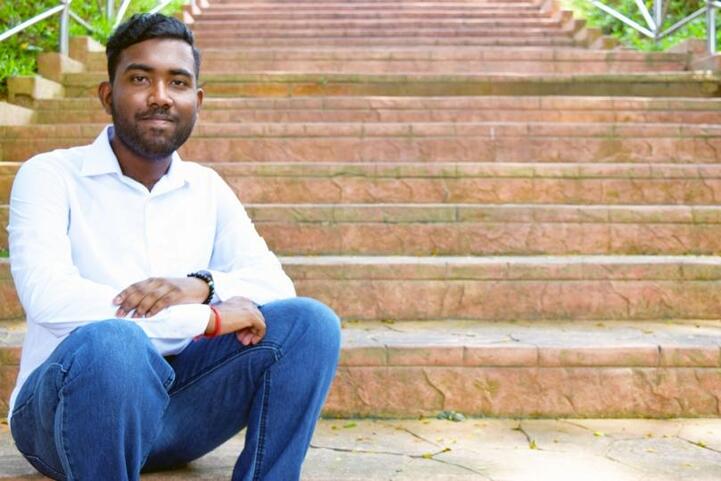
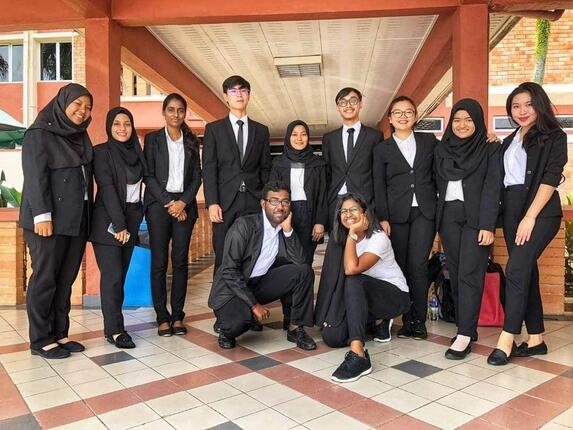
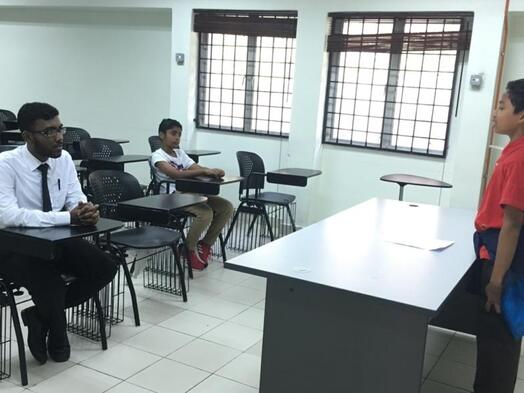
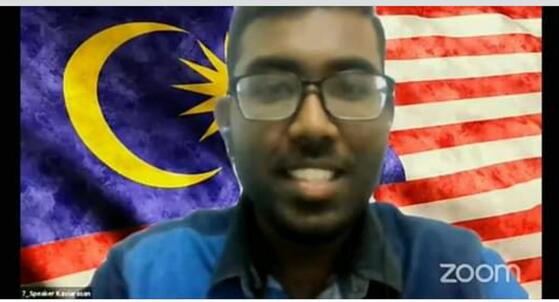
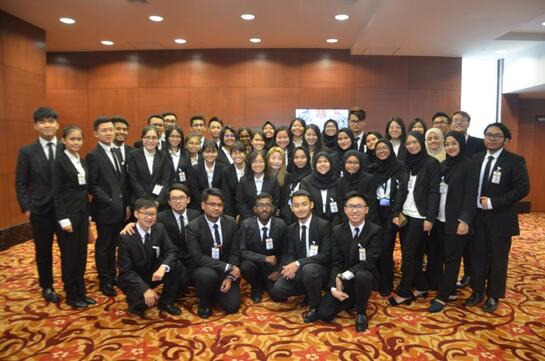
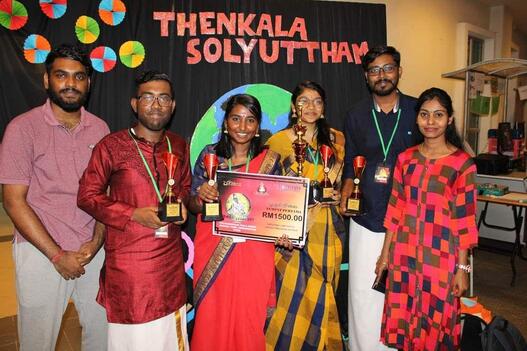
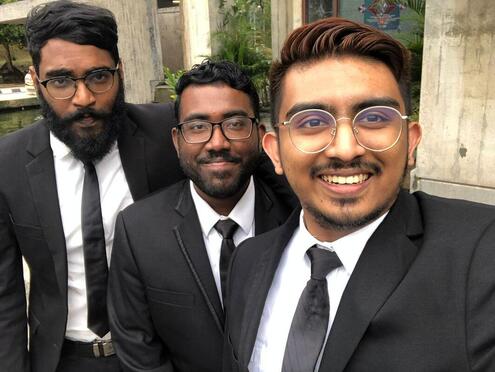
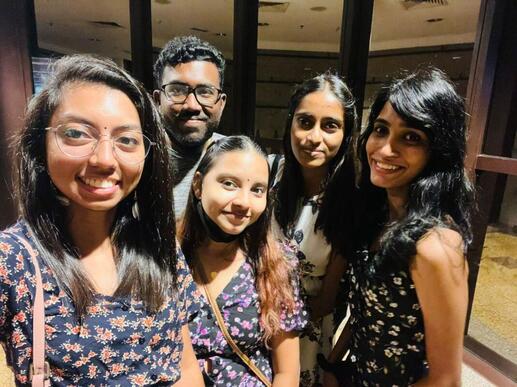
 RSS Feed
RSS Feed